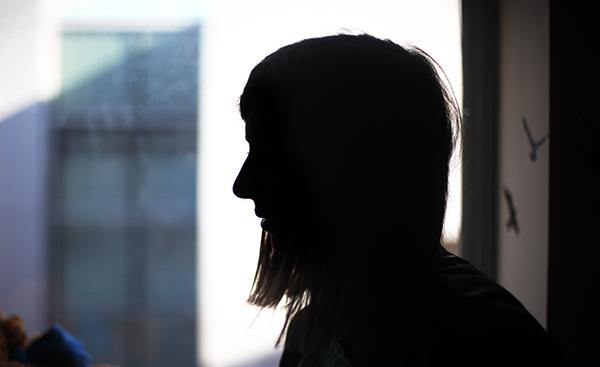For weeks as she waited for the outcome of her sexual assault case, the sophomore said she was pushed aside by GW’s disciplinary office and forced to deal with dial tones rather than understanding administrators.
After telling the story of her alleged rape during a five-hour hearing last summer, she felt isolated as time accumulated with no decision from the University.
“It was this constant battle with GW, with me saying, ‘I would like more information.’ And it was ‘Fill out this form, fill out this form,’” she said. The University administration, she added, didn’t seem “human.”
The sexual abuse victim is now asking GW officials to strengthen support for students who, like her, sought justice against their alleged attacker. She’s one of the growing number of students at campuses across the country have mobilized to advocate for stronger sexual assault policies and better counseling for victims.
The sophomore met with top administrators in November for a conversation that she described as positive, but she hasn’t heard about plans to change GW’s sexual assault policy, which was last revised in the fall after a two-year review.
Those proposals include allowing alleged victims and perpetrators to each have a pair of personal advisers by their sides during the emotionally draining hearings, which she called a “nightmare.” One person would bring specific knowledge of GW procedures, while the other would offer emotional support.
Under GW’s current policy, victims do meet with a sexual harassment response coordinator, but once they start the judicial process, they are told to communicate through the office of Student Rights and Responsibilities. While the sophomore could sit next to an adviser during the hearing – in this case, a law student – she couldn’t speak to her in the room. She also wasn’t allowed to bring her best friend from home into the room, after she’d flown to D.C. for support.
“You are your own lawyer,” she said.
Tara Pereira, an administrator who formerly oversaw the University’s compliance with the anti-discrimination law Title IX, served as response coordinator before she left her position in December.
“If I had a question, I could ask her, but she always had to refer me to SRR,” the student said. “She was very disconnected from the process, which is strange.”
The student delivered her two-page proposal during a meeting with administrators – including Senior Associate Dean of Students Mark Levine, Director of Student Rights and Responsibilities Gabe Slifka and Vice Provost of Diversity and Inclusion Terri Reed – in late November.
The sophomore – who is not identified because The Hatchet does not publish names of sexual assault victims – said the administration has been receptive to her suggestions, and said GW was already considering some of her ideas, such as bringing in an advocate to support students on all sides of the arduous hearing process.
Levine, who oversees student health issues on campus, said in an email that the meeting was productive and that GW is “giving serious consideration to the recommendations.”
But Levine added that he could not comment specifically on potential changes because it would include a “thorough consideration of proposed revisions and additional reflection on case management protocols.”
Seventeen people reported on-campus sexual assaults to city police in the last four years, though most sexual assaults go unreported.
Administrators finalized an overhaul of GW’s sexual assault policy in September, ending two years of debate over how long individuals should be able to file formal complaints about sexual offenses and the level of proof a victim must provide before an accused perpetrator is punished.
The policy changes were mostly applauded by sexual assault activists on campus, as administrators sought to strike a balance between making the hearing process fair for alleged victims and perpetrators.
But the sophomore said the current procedures “add to the stress and confusion of students involved in the process,” dragging on and preventing her from moving past her assault.
President of Students Against Sexual Assault Matthew Scott, who supported the sophomore as she shaped her policy proposal, said he hopes administrators will recognize the value of her perspective.
Scott said he thinks the University officials need to “pick up where they’re lacking” in educating the campus community. Administrators especially need to know the ins and outs of the new sexual assault policy better, he said.
The sophomore based her proposal on her own experience with GW’s procedures, in which the perpetrator was found guilty of sexual misconduct and barred from University housing.
She sought guidance from Pereira six months after she said a male student assaulted her on campus. She said she had not originally planned to ask the University to take disciplinary action, but her perpetrator began to harass her.
She said she decided to pitch changes to GW’s policy to help other student victims, who otherwise might feel discouraged from reporting an incident.
“You cannot forget how difficult it is for someone to come forward and report such an intimate crime. It may take a long time, and it may be difficult for the survivor to speak out, but I can assure you that no one wants to go through the process for fun,” she wrote in a statement to administrators. “For a survivor, there is no ‘win or lose.’ There is justice and morality, and that is all that is being asked of the system.”
This post was updated on Jan. 13, 2014 at 12:53 p.m. to reflect the following:
Correction appended
The Hatchet incorrectly reported that the sophomore’s hearing was last fall. It was actually last summer.







